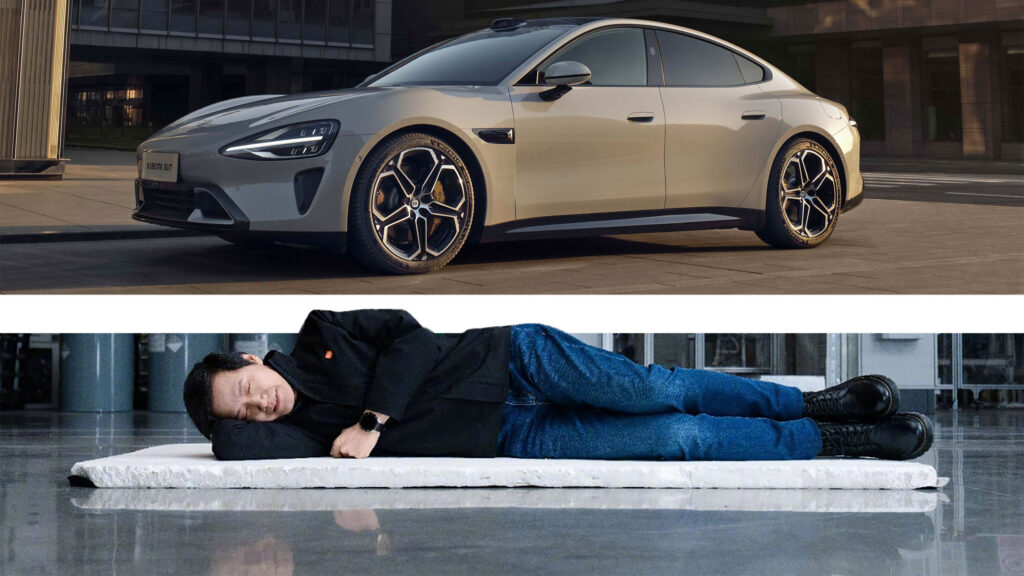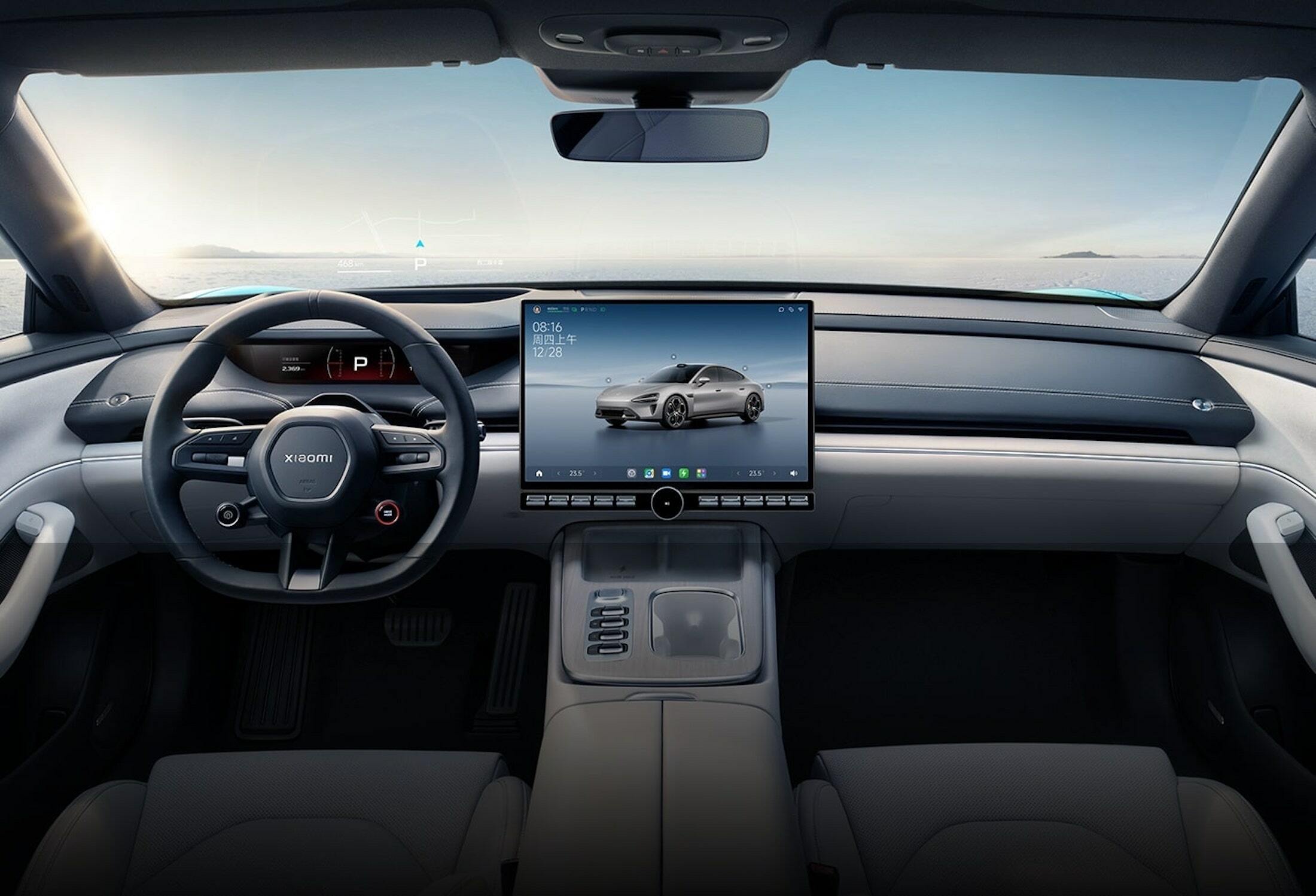- Chinese billionaire Lei Jun was photographed sleeping on the factory floor, referencing Elon Musk.
- The founder and CEO of Xiaomi celebrated the 100,000 unit production milestone of the SU7 sedan.
- Still, Xiaomi has long way to go in order to break even, as it needs to sell 300-400k vehicles per year.
Lei Jun, founder, Chairman, and CEO of Xiaomi, took a page straight out of Elon Musk’s playbook—quite literally—then added his own twist. To commemorate the production milestone of 100,000 SU7 electric vehicles, Lei posted a photo of himself snoozing on the factory floor, a nod to Musk’s famed claims of doing the same during Tesla’s early years, though without explicitly naming his American counterpart.
The Xiaomi boss shared the photo on social media with the following caption: “Netizens urged me to go to the factory to tighten the screws. Actually, I go there often. I arrived early this morning. I came too early and took a nap in the workshop. Unexpectedly, when I woke up, 100,000 units had been completed!”
More: Ford’s CEO Is Daily Driving A Xiaomi SU7 EV And Loving It
He followed up by noting, “From the release of SU7 to today, it took us only 230 days to produce 100,000 units! As a newcomer in the automotive industry, this speed is already very remarkable. We will hold a ceremony for the 100,000th unit to come off the production line later.”
This cheeky gesture, of course, references Musk’s well-documented habit of treating Tesla’s factories like glorified crash pads during the Model 3 “production hell.” Musk has openly acknowledged using the California and Nevada facilities as his “primary residences” for three years, a period marked by severe production challenges.
Good morning! Woke up to the news that 100,000 units of Xiaomi SU7 achieved!⚡️
— Lei Jun (@leijun) November 13, 2024
From the launch to today, it took us only 230 days to hit this milestone. For a newcomer in the EV industry, that’s a speed we’re truly proud of. Can’t wait to celebrate the 100,000th in a bit! pic.twitter.com/92gmML2mdH
Congratulations to our Xiaomi EV team! The 100,000th Xiaomi SU7 has officially rolled off the production line. For our first model, reaching this milestone in just 230 days is an incredible achievement! pic.twitter.com/rU6HtMQNSA
— Lei Jun (@leijun) November 13, 2024
Back to Xiaomi, the SU7 was introduced in December 2023, but production started in April 2024. With a profile that echoes the Porsche Taycan, a McLaren-esque nose, and Lincoln-inspired taillights, it’s clear the design team had more than a few influences in mind.
Despite boasting impressive specs and cutting-edge technology, the SU7 is priced to undercut the Tesla Model 3 in China, starting at ¥215,900 ($30,000). The top-tier model, the performance-focused Xiaomu SU7 Ultra, is priced at ¥814,900 ($112,500) and recently clocked a 6:46.874 lap time at the Nürburgring. Although the run didn’t qualify as an official record, as the car was a prototype rather than a final production model, it’s still an impressive feat. Not bad for a brand better known for smartphones than sports cars.
However, while the 100,000-unit milestone is a notable achievement, Xiaomi is still losing money on each EV it produces—no surprise, considering that’s the reality for most newcomers in the EV space. Analysts suggest the company will likely hit the break-even point once annual sales reach between 300,000 and 400,000 units. Ji Guo Wei, the director of Xiaomi’s EV factory, revealed that the company delivered a solid 20,000 SU7s in October alone.
The CEO of Xiaomi has announced a follow-up video titled “Xiaomi Intelligent Chassis Pre-research Technology”, highlighting the company’s advancements in electric vehicle (EV) technology. Since the launch of Xiaomi Motors, the company claims to have taken a foundational approach, investing ten times more than the industry standard to develop core technologies and produce quality vehicles.
Correction: A previous version of this article stated that the Xiaomi SU7 Ultra set a new record for a four-door EV at the Nürburgring. This is incorrect. While it is technically the fastest, the lap was achieved using a prototype model, not a production car.














